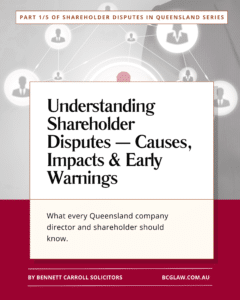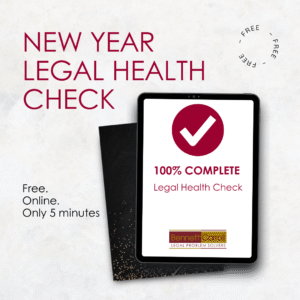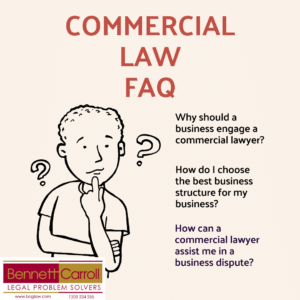The process of purchasing a business in Queensland can feel overwhelming, but with the right knowledge, you’ll be better prepared to handle the more complicated aspects. One of the most crucial stages is the period between signing the contract and settlement. During this time, the business isn’t officially yours yet, but you’ve already committed to buying it. Since this phase can last several months, it’s an ideal time to start preparing for your transition into business ownership.
Before you can fully settle into your new role, there are several key tasks to complete.
Whether it’s securing a business loan, setting up utilities, or finalising legal and financial details, there are essential steps to take once the contract is signed. Here are seven critical tasks every business buyer should consider, according to our experts:
1. Pay the Deposit
The first thing you’ll need to do is pay the deposit you’ve worked to save. This deposit is usually a percentage of the purchase price (somewhere between 5% and 10% is the norm).You should try to have the contract written so that the deposit is payable within 2 or 3 business days after the date of the contract (i.e. the date the last party – usually the seller – signs it). If you don’t do this, the usual contract terms require payment on the day that you sign the contract NOT when the seller does i.e. you pay it in advance, in the hope the seller actually signs the contract, before a binding contract exists. This may seem odd; a contract that requires performance of a term before that contract even comes into force; but that is the case.
Paying a single dollar of the deposit even a single day late is a very significant breach of the contract and the seller is entitled to keep your deposit and sue for any loss on re-sale and damages. It’s an easy trap to fall into as banks now generally hold payments to new payees for 24 hours and this, we have seen many times, causes buyers to lose their deposit. It’s easy to protect yourself from that trap.
The deposit is held by the seller’s solicitor or business broker in a trust account until the settlement date, when the remainder of the payment is due and the property officially becomes yours. Check the deposit amount in your contract to ensure it matches what was agreed upon during negotiations and aligns with your lender’s requirements.
2. Finalise Financing
If you’ve received pre-approval for your business loan, now is the time to make it official. Notify your lender that you’ve signed the contract and provide them with a copy ASAP so they can review the purchase price, settlement date, and other key details. Banks are generally the most painful parties to deal with during a business purchase. Banks can turn around residential lending fairly quickly; it’s their bread and butter. Business lending however will usually take months, not weeks. Carefully review all associated costs, and your lender may request additional documentation, such as proof of income, bank statements, and operating expenses, to verify your financial standing. Get these documents ready. The last thing you want to do is slow your lender down, given they move at a snail’s pace at the best of times. They’ll also conduct an in-house valuation to make sure the price matches the market value. They do this by requesting profit and loss statements and balance sheets for the business, usually for the last few years, so get these from the seller if you haven’t already. If your loan is not approved, certain contracts may allow you to cancel the purchase and potentially refund your deposit. Ensure yours gives you that right before you sign the contract.
3. Prepare for Additional Inspections
While one visit might seem enough, business buyers should plan for more inspections once the contract is signed. Training periods and even shadow periods (where you learn or watch, respectively) are very important negotiation points to include from a buyer’s perspective. Documents do not necessarily save business buyers and there is no substitute for thorough due diligence. You aren’t merely buying a house, which in a worst-case you could always re-sell at similar value. You are buying a significant at-risk asset where the value generally is only maintained with significant on-going maintenance and input from you. Re-selling in a worst-case might mean you lose all of the money you paid for it, as buyers are afraid of sellers who have only bought the business recently. Your contract should permit you to carry out such due diligence inspections after signing as you see fit and have the contract conditional upon you remaining satisfied with the fluctuating state of the business, giving you the option to request changes, adjust the purchase price, or even cancel the contract if there are serious issues.
4. Set Up Your Utilities
Moving your business into a new premises is a good time to reassess your utility providers. Many business owners choose to switch providers—whether it’s for electricity, internet, or other services—before moving in. Having your utilities set up before settlement ensures a smooth transition when you take possession of the property. This is especially important if you need services to be operational immediately for your business.
5. Arrange Insurance
While businesses usually remain (subject to what the contract says) at the risk of the seller until settlement, both the landlord and your bank will require evidence of insurance before letting you in or providing funds for settlement (respectively).
6. Plan Your Move
Relocating your business can be a logistical challenge, so it’s best to get organized early. Set a move-in date after settlement that gives you enough time to prepare. Reach out to professional movers or arrange for a truck rental if you plan to handle the move yourself. Take the time to declutter and streamline your operations before the move to make the process more efficient. Additionally, measure your new space to ensure that your equipment, furniture, and supplies will fit. A detailed moving checklist will help keep the process on track and ensure that everything is in place for a smooth transition. Ask us for it.
7. Expect the Unexpected
Despite careful planning, you may encounter unexpected issues—whether it’s a last-minute resignation of a key staff member, a delay in financing, a typo on an insurance certificate of currency, an additional throw-in requirement of the landlord, or a logistical hiccup during settlement. Preparing for these challenges will help you manage them more effectively. Set aside a buffer in your budget for unforeseen expenses (both time and money), and stay organised and proactive throughout the process. Clear communication with all parties involved will help ensure a smoother path to settlement and a less stressful experience for your business.
Final Thoughts
By staying ahead of potential obstacles and managing tasks proactively, you can reduce stress and navigate the business-buying process with greater ease.
Need Expert Legal Advice for Buying a Business in Queensland?
At Bennett Carroll Solicitors, we provide expert legal assistance for business buyers across Brisbane, Gold Coast, Sunshine Coast & Ipswich. Our experienced business lawyers in Queensland can guide you through contract negotiations, due diligence, financing, and settlement to ensure a smooth business purchase.
👉 Contact us today for a consultation or check out our other articles on buying a business.
We have office located in:
📍 Brisbane (North, South & Central CBD)
📍 Gold Coast
📍 Sunshine Coast
📍 Ipswich
Related Reads:
Buying a Business? How to Conduct Proper Due Diligence to Protect Your Investment
Is Your Current Lawyer Truly Supporting Your Business Goals?
Navigating Business Structures: A Guide to Setting Up Your Business
Maximising Lease and Franchise Agreement Renewals: A Comprehensive Guide







